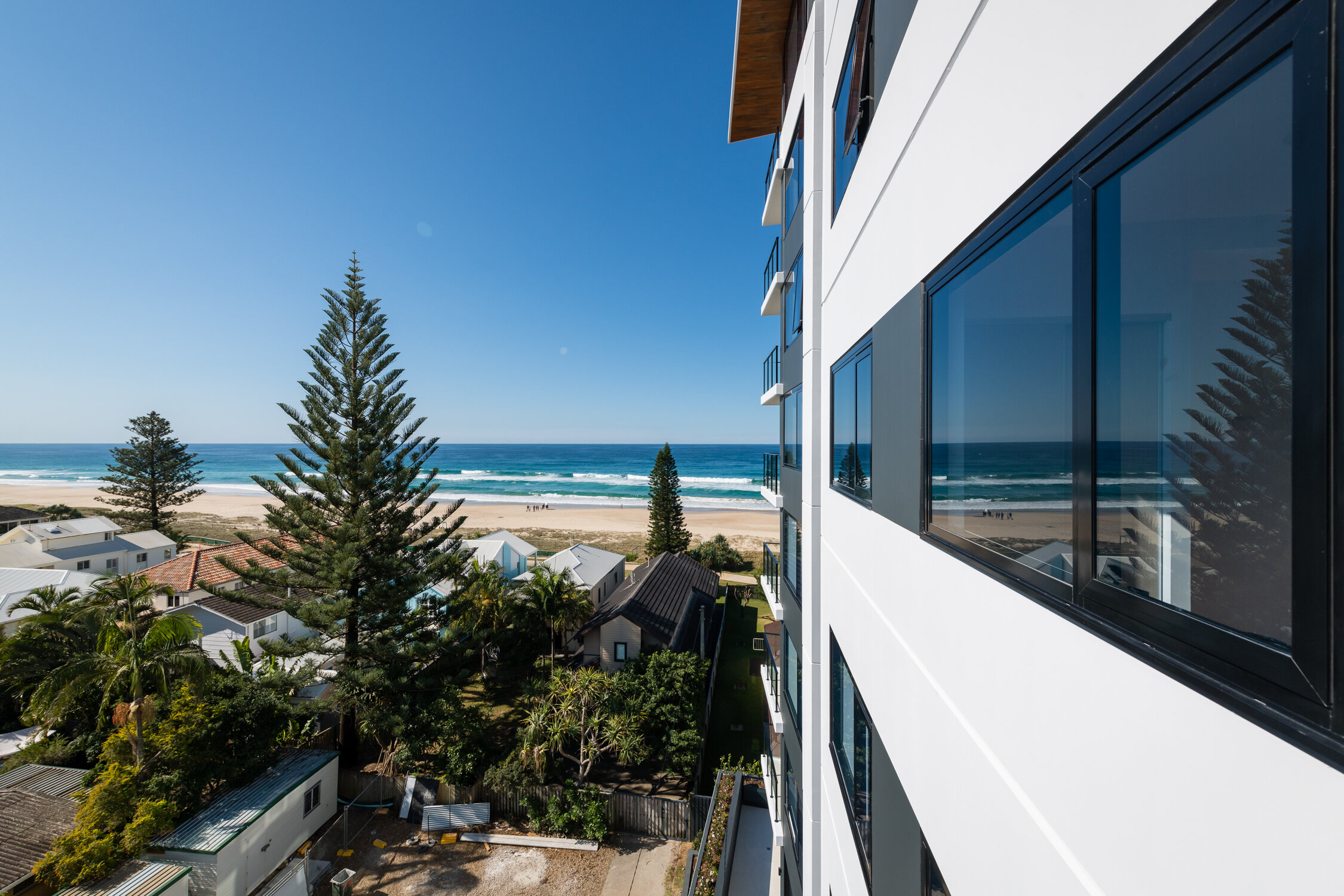One of the standout features of Accessible Homes Australia’s Specialist Disability Accommodation apartments in East Palm Beach on the Gold Coast, is access to an onsite 24/7 concierge care service, run in partnership with boutique care provider CareMatch Australia.
Here, Vitori Buatava, founder and managing director at CareMatch, describes how the Palm Beach concierge support service works, the important role of technology, and the biggest benefits of this type of SDA model.
The concierge care service
Vitori explains the concierge care service is provided by CareMatch staff who are located onsite in overnight accommodation, to provide 24/7 support to people with high physical support requirements.
“Usually a participant would have their own core supports throughout the day. However, during some core support activities there may be a requirement — for things like a two-person hoist assist — where participants may need additional support and they’re able to call upon the concierge to assist,” explains Vitori.
“Then, outside of those core supports or after hours, we’re available.”
Primary support services
One of the key principles of AHA’s partnership with CareMatch and in the spirit of the NDIS, residents of SDA apartments have full choice and control.
“Tenants can absolutely bring their own core supports and care providers,” assures Vitori. “We’ve got some residents moved in at our East Palm Beach apartments doing exactly that.”
“They’ve got long-standing relationships with organisations, which have provided really good, quality care — and so they can continue to have those supports.”
“We’re just there as the concierge and, if they’re happy with our services, ultimately we would love to offer their core supports also. But, primarily, we are there after hours.”
Vitori says each tenant is different, with current AHA residents reflecting a mix of support needs. “Some people have chosen to use CareMatch as the concierge service, some come with their own core supports and support providers, and others have partners as their primary carer and only need to use us every now and then.”
The role of technology
All AHA SDA apartments include nurse call systems, emergency duress systems, and provisioning for assistive technology to help support residents to live independently.
Vitori says AHA goes a step further than the SDA Design Standard for high physical support requirements, by hardwiring all communications systems. “A lot of assistive technology is based on web-based platforms or requires wifi connection,” says Vitori. “But at East Palm Beach there is a hard-wired nurse call system in place.”
“Tenants can call directly to the concierge care apartment or sound the duress alarm. If they need some assistance or have had a fall in the shower, they use a voice command or hit a button to speak directly to carers — who can then prioritise case by case.”
“The tech can also come as pendants as well, so a tenant always has access to it — whether it’s worn as a watch or around the neck. There’s also the ability to monitor balance, so if they fall but can’t hit the button, it sets off an alarm with our team.”
“Our staff carry DECT (Digital Enhanced Cordless Telecommunications) phones with them at all times to be able to respond appropriately in required timeframes. They’re run off a secure infrastructure network to ensure calls are instant and direct and not affected by power or internet issues.”
Lifestyle and choice
Vitori says there are many benefits to living independently — particularly around people’s own dignity. “A lot of SDA residents come from either residential nursing homes, group homes, social housing, or have been living with family,” says Vitori. “And there are lots of little things non-disabled people take for granted.”
“It can be a thrilling change just to be able to open the front door for a visitor. Some NDIS participants have never had the ability to open their own front door because having a powered wheelchair makes it difficult to open and mobilise around a heavy door.”
“The ability to put a kettle on and make a cup of tea for a friend, when you’re used to living in a group home and group setting environments with communal kitchens and living space, is a huge benefit. It’s the little things that are good for people’s mental health and their own self-worth.”
“It’s about lifestyle and choice.”
Level of service
“You may get the same level of service in a group home and you may get a similar level of service in a residential nursing home because you have staff there 24/7 and around the clock. But the benefit of the SDA model is that it’s tailored to support people to live independently,” says Vitori.
“It’s not an aged care model, you don’t have aged care staff to provide support — you have specialised disability support workers helping people to live independently as possible.”
NDIA funding
Vitori points out the concierge care service offered under AHA’s SDA projects is also beneficial from a funding perspective. “When you’ve got mixed-use care or concierge care, you are spreading the cost of the staff required to do that across seven to 10 apartments, as opposed to a three-person group home. From a cost-efficiency point of view for the National Disability Insurance Agency, which is severely underfunded at the moment, it makes a compelling argument.”
“Here, we’re seeing really great care outcomes for participants wanting to live independently and it’s financially viable.”
Vitori says the feedback from AHA tenants has so far been overwhelmingly positive. “They are really happy with East Palm Beach it is absolutely beautiful. Plus, it gives people their sense of dignity, respect and independence back.”
Speak to the Accessible Homes Australia team about whether our Specialist Disability Accommodation apartments and concierge care model are right for you. Fill in our online form or email team@accessiblehomes.com.au.
